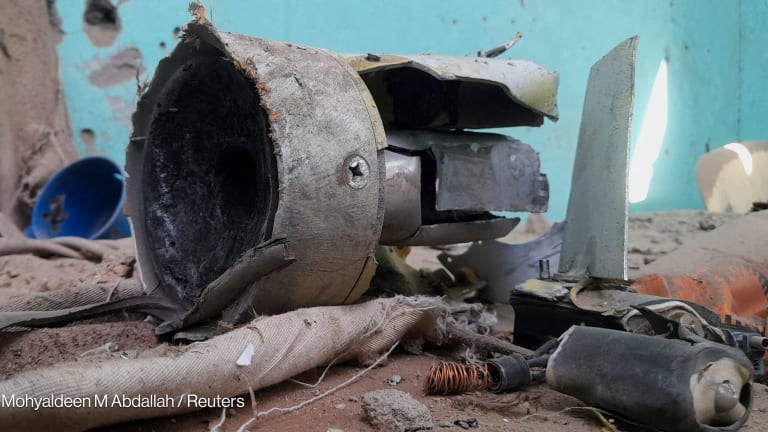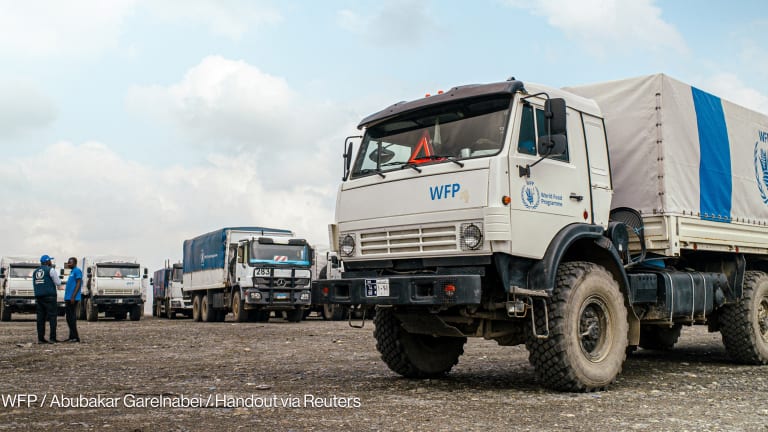
WASHINGTON — The U.S. government’s aid agency continues to monitor an “incredibly fluid” and “very, very dangerous” operating environment in Sudan, a U.S. Agency for International Development official told U.S. lawmakers Tuesday.
In the wake of a coup in April that ended the 30-year rule of former President Omar al-Bashir, and a subsequent violent military crackdown against civilians on June 3, USAID has continued to provide humanitarian relief in a country facing widespread food insecurity — while battling challenges of access, bureaucracy, and rapid change.
“Where we have access on one day, we may not have access on another day,” Ramsey Day, senior deputy assistant administrator at USAID’s Africa Bureau, told members of a U.S. House of Representatives subcommittee on Tuesday.
USAID is in “constant scenario planning mode,” Day said. Those potential scenarios include both a descent into greater instability and violence, or, more optimistically, the establishment of a civilian-led government.
If such a government were to emerge, USAID is looking at potential options to support it. “In the event that there is a civilian-led government … we are prepared to adjust our assistance posture towards that government,” Day explained.
That outcome appeared less likely after a top general on Monday rejected a power-sharing agreement with the Forces for Declaration of Freedom and Change, which had been proposed by Ethiopian diplomats attempting to mediate the standoff between the military authority and civilian representatives.
USAID is currently considering which additional tools could be brought to bear in the country. Day said the agency is considering whether programming from the Office of Transition Initiatives — which “seizes emerging windows of opportunity” in countries experiencing transitions from crisis and conflict — could be an effective route in the future. For the time being, most of USAID’s assistance is in the form of humanitarian aid, not development assistance.
There are currently 8 million people in need of humanitarian assistance in Sudan, Day said, which marks a dramatic increase in recent months. USAID’s humanitarian assistance is currently reaching about 2.5 million people, he said, though humanitarian access has become highly unpredictable — and been hampered by the Transitional Military Council’s decision to cut off the internet.
The perpetrators of the violence against civilians on June 3, which left more than 100 people dead and hundreds more injured, are widely believed to be members of Sudan’s Rapid Support Forces, which grew out of the Janjaweed militias that carried out atrocities in Darfur beginning in 2003. Day said that in some cases, the African Union-United Nations Hybrid Operation in Darfur — or UNAMID — has been able to provide security to allow humanitarian access in parts of the country.
“Any kind of transition from UNAMID bases to something that is controlled by the RSF is deeply concerning to us and absolutely unacceptable,” he said.
Since the RSF operates under the control of the Transitional Military Council, it is the military council’s responsibility to bring them under control, said Makila James, deputy assistant secretary of state for East Africa and the Sudans.
“The TMC is ultimately responsible for all the violence that’s happening in the country,” she said.
“We’ve made it very clear that we expect the TMC to have the RSF removed from Khartoum. They are a force that’s operating without control, and they need to be removed from that area,” she added.
Day told lawmakers that USAID is not currently seeing “systematic and direct interference” in humanitarian programs from the military junta, and he assured lawmakers that the “humanitarian operations are functioning.”
He added that, “in an odd chain of events,” the fact that Sudan’s National Intelligence and Security Services has been distracted by the political crisis has, “enabled some of the permitting process to actually improve,” since this is the branch of government that has created permitting problems for USAID in the past.
While the U.S. has been Sudan’s largest humanitarian donor, it is not the only country providing assistance.
Saudi Arabia and the United Arab Emirates have pledged $3 billion over two years to Sudan and have each so far deposited $250 million into the central bank of Sudan in an effort to stabilize the country’s currency, according to James.
“We have made the strong case to them that any additional disbursements of those funds should be done in coordination with the international community — one, to make it more effective and sustainable, and to use it to help a civilian-led government, which will need that assistance over time,” she said.
“They seem to be responsive to those entreaties, and we hope that’s how they will disburse the remainder of that $3 billion,” she added.








